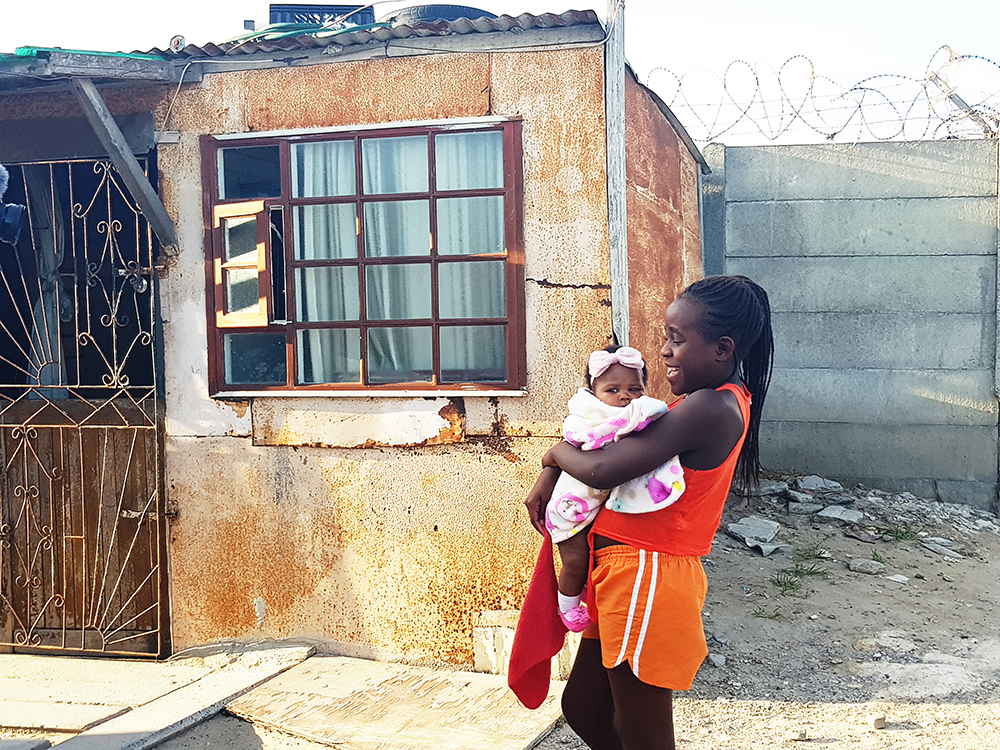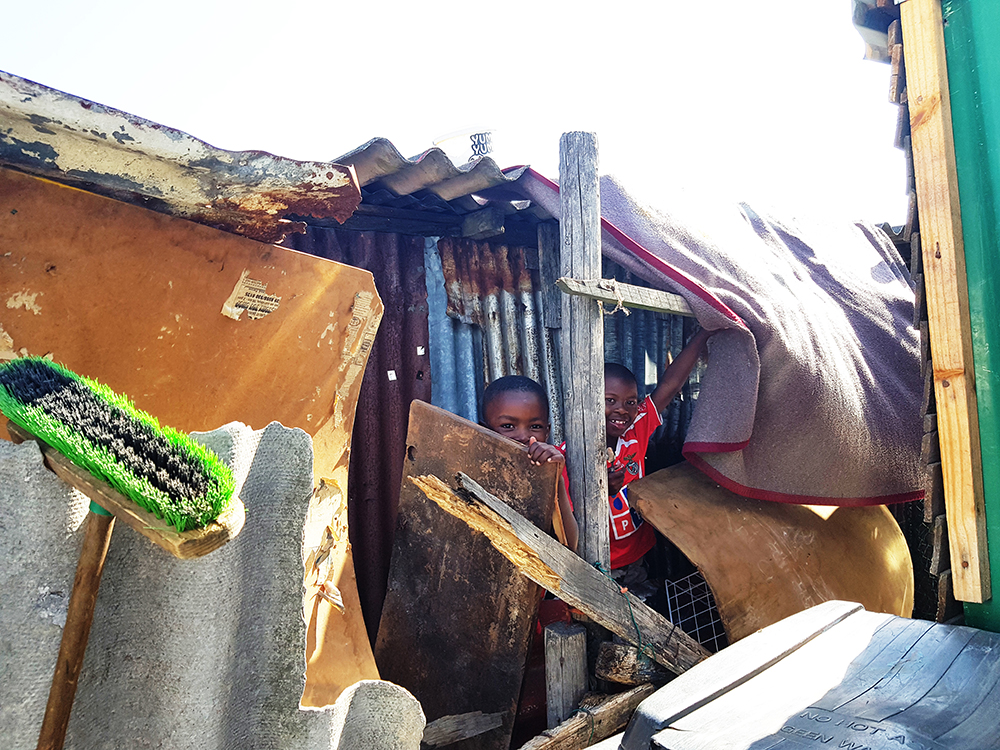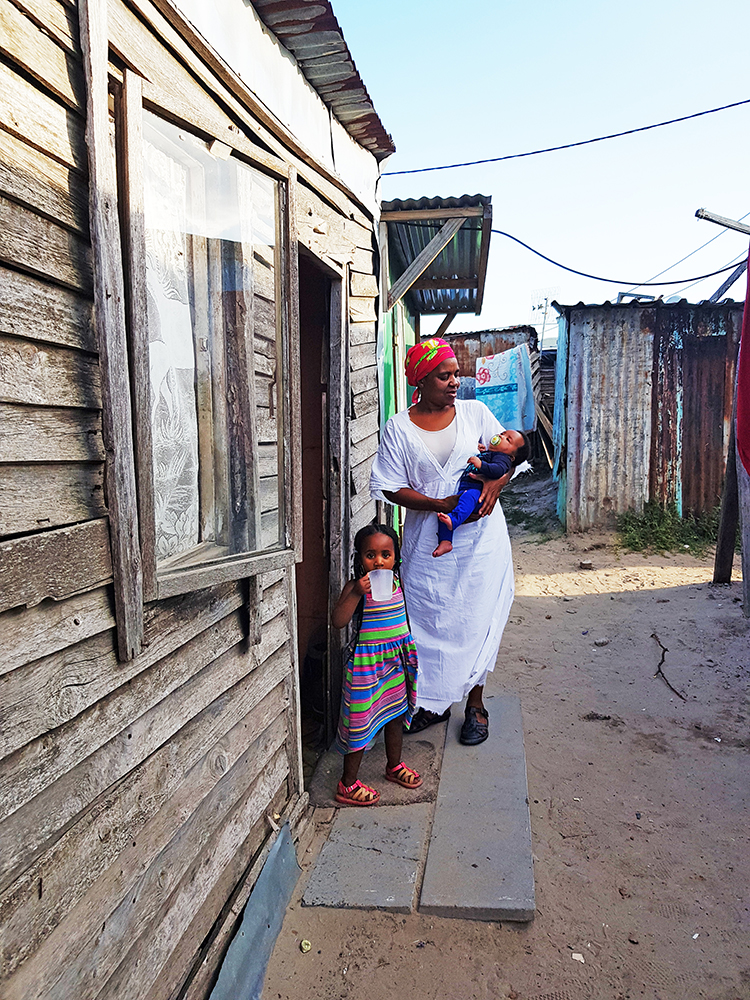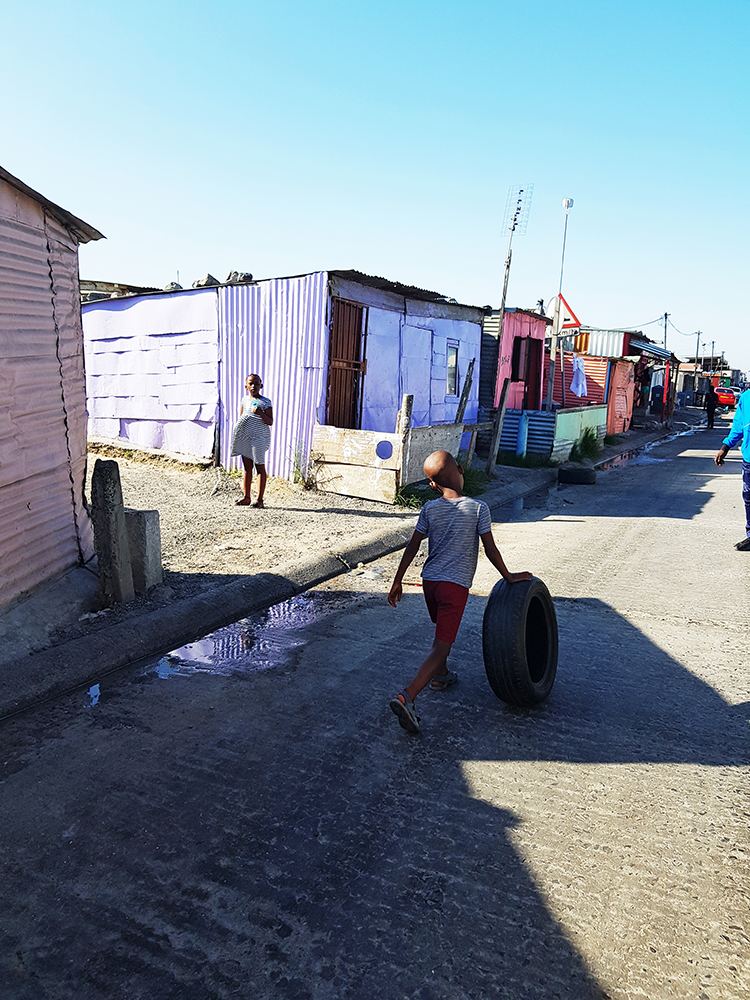COVID-19: AN UPDATE ON THE SITUATION IN OUR TOWNSHIPS
At the end of March, we learned about the first people being infected with Covid-19. We were very concerned and reported about it in an early blog post. Our concern was to prove to be justified. The pandemic is hitting people in the hot spots of the Townships particularly hard. We are now in a permanent state of emergency – not just because of the virus, but above all because of the consequences: hunger, violence, lack of perspective. Our houses, which are safe islands for the community, are among the few facilities for help and care in the Townships. Today we want to reflect on what the situation means for the people in our hot spots and for Ubomi.

There is no Future in the Hood
„A fundamental concern for others in our individual and community lives would go a long way in making the world the better place we so passionately dreamt of.” A quote from Nelson Mandela – freedom fighter, father of the nation, first democratically elected president of South Africa. A man who, despite 27 years of political imprisonment, never gave up believing in a better world and who continues to inspire millions to this day. The inspiration remains, and by law, freedom and equality have prevailed since the end of apartheid 26 years ago. However, in hardly any other country the social inequality between skin colours and social classes is as great and pronounced as in South Africa. The pandemic exacerbates the situation and highlights the inequality – a paradox in a disease that is the same for everyone worldwide.
People die from the disease, people die from hunger, people die from the violence and the corruption and lack of perspective. Nearly six hundred thousand people have contracted the Corona virus in South Africa; nearly 13,500 have died from it so far (8/27/2020). But statistics on excess deaths compiled by the SA Medical Research Council show that the unusual loss of life is actually far greater: Particularly in the Townships, where testing is scarce, the number of unreported cases is unclear. What is clear is that loved ones have already died in our neighbourhoods because of a lack of resilience and care. According to official surveys, South Africa is the fifth most affected country in the world by the pandemic. In Khayelitsha, living conditions have deteriorated dramatically. Hunger, mental illnesses, and growing social and political instability are increasing linearly, if not exponentially. The people we have grown to love over the past years, our neighbours and our children, are suffering greatly from the severe and lasting effects of the pandemic and the long, hard lockdown it has brought.

The Current Situation: Unrests, Land Grabbings, Decline of the Currency
Meanwhile (since August 18), the country is on Lockdown Stage 2. Schools reopen, at least for two hours a day. Those who can afford leisure activities may pursue them again. Those who have a job can finally earn money again. A little bit of normality returns – at least for those who can lead a “normal” life. But what does “normality” look like in the Township?
South Africa has incurred billions in additional debt for the Covid-19 Umbrella Fund. Everyone must bear the cost of this. The decline in the currency, leading to higher prices, especially for necessities, is hitting the poor the hardest. This is unacceptable, outrageous, and diametrically opposed to the ever-repeated SDG (Social Development Goals) statements of intent. Even the poor without access to education have noticed this by now – and are experiencing it particularly at first hand.
Life is characterized by social insecurity, unemployment and inadequate access to health care facilities. The population’s trust in politics has been shaken in the hot spots of the Townships. The already fragile and sometimes criminal structures are the breeding ground for a rapid growth in corruption, which is now experiencing an early blossom.
Before the crisis, many in the Township were able to get by with day labourer jobs and thus at least provide for the basic needs of their families. But the economy has hit rock bottom, and most people have lost their jobs. In Khayelitsha, too, there has been a lot of unrest in recent weeks because of this: Because many fear they will no longer be able to pay the rent for their “shacks” or because their shelters are now under water due to the heavy rainfall with winter temperatures, they are trying to get a hold of land. With spades and axes, they clear fallow land in order to build small huts there. The illegal land grabbing is brutally met by the police and the army with rubber bullets and tear gas, and huts that have just been erected are torn down. Violence generates counter-violence. Many people despair and, in their impotent rage, become a danger themselves.
Violence is a topic that has kept us very busy in recent weeks and sometimes leaves us puzzled. In particular, violence against women and children has increased sharply. Even before Covid-19, “gender-based violence” – predominantly violence by men against women and children – was an issue that strongly shaped the environment of our children. Due to the dramatic circumstances of the Covid-19 crisis, these violent crimes have increased significantly.
Uncertain Future: What Ubomi Is Doing now
Our Ubomi homes shall continue to be safe islands in the chaos during this time. With life skill training and psychological care, we try to give the children a solid emotional and mental basis and talk to them about their experiences and the issues they are increasingly facing at the moment: illness, death, violence, hunger. We want to make them strong for this time that is now coming, want to “empower” them.
Of course, we also continue to fight to break the cycle of lack of prospects and violence. The food supply that we have been organizing on site for months for the families of our communities and the soup kitchen in our Ubomi houses, which at least guarantee a warm meal, also help to alleviate some of the worst suffering and desperate violence.
There is still a sense of community in the Township, people still support each other. But this ubuntu, which has made the communities so strong, is crumbling: The unconditional solidarity that has its own term in Xhosa, “Ubuntu,” is losing strength as people struggle to make ends meet. What is happening now is undoing the positive development of neighbourhoods and setting back our work. That’s why we need to change our focus at Ubomi. If up to now our approach was to encourage our children to stay in the Township and to shape their centre of life with their abilities, we now have to rethink and enable the people who come to us to have a perspective of heading for a life outside Khayelitsha.
„Education is the most powerful weapon which you can use to change the world.“
Nelson Mandela
The hope that Townships can be developed into peaceful places of opportunity and possibility seems to us – perhaps temporarily – no longer possible. We need ways out, paths out of the Township. This can only be done through education, access to better schools and to jobs, the remembrance of traditional values (Ubuntu) and the development of an African way.
For this reason, we will focus even more on the topic of education in the future, accompany and support the Ubomi children more closely on their educational path and try to create vocational training opportunities for them. As the schools are just opening again step by step, we have already intensified the lessons in the Ubomi houses during the last weeks. In addition to English and math, computer courses are now on the schedule. Here, a big thank you goes to Labdoo, who gave us laptops with pre-installed learning programs.
There is no future in the hood? We want a peaceful life and a better future for our Ubomi children. We believe in this vision. “It always seems impossible until it’s done”. This quote from Nelson Mandela was our guiding principle when we planned and finally opened our first Ubomi house four years ago. Please continue to help us realize our vision and provide a life worth living for children who are so incredibly deserving.
Biggi Hägemann
Donation Account:
Ubomi e.V.
IBAN: DE95 2505 0180 0910 3547 40.
SWIFT-/BIC-Code: SPKHDE2HXXX
Financial Institute: Sparkasse Hannover
BECOME A SUPPORTER
We want a peaceful life and better future for our Ubomi children. We believe in this vision. „It always seems impossible until it’s done“. This quote from Nelson Mandela was our motto when we planned and finally opened our first Ubomi house back in 2016. Please continue to help us realize our vision and enable the children, who so deeply deserve it, to have a life worth living.



